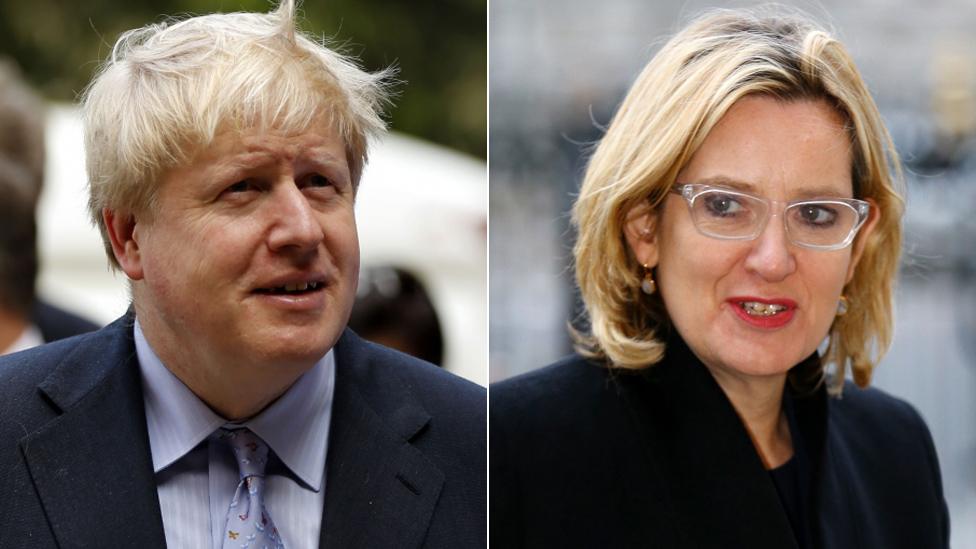Trump executive order: Million sign petition to stop UK visit
- Published
- comments
Trump travel ban: Protesters speak out
More than 1.3 million people have signed a petition urging the government to call off President Donald Trump's state visit to the UK, amid a row over his recent immigration measures.
Downing Street, however, said Theresa May was looking forward to the visit.
Boris Johnson is addressing MPs amid confusion over whether UK dual nationals of seven banned Muslim-majority countries are affected.
Mr Trump's executive order on immigration has caused anger worldwide.
US airports have seen chaotic scenes as travellers were detained on arrival.
Protests in response to Mr Trump's order are expected to take place after 18:00 outside Downing Street and in other UK cities.
Buckingham Palace has declined to comment on the row.
The Foreign Office said on Sunday the clampdown should not affect UK nationals travelling to the US, even if they had shared nationality with one of the countries on which restrictions have been placed.
But the US embassy in London later issued a statement, since taken down from its website, which told any citizens of the seven countries in question and also those holding dual nationality not to apply for a visa for the time being.
The petition is now the second-most popular on the government's website, which was set up in July 2015.
It states: "Donald Trump should be allowed to enter the UK in his capacity as head of the US Government, but he should not be invited to make an official State Visit because it would cause embarrassment to Her Majesty the Queen."
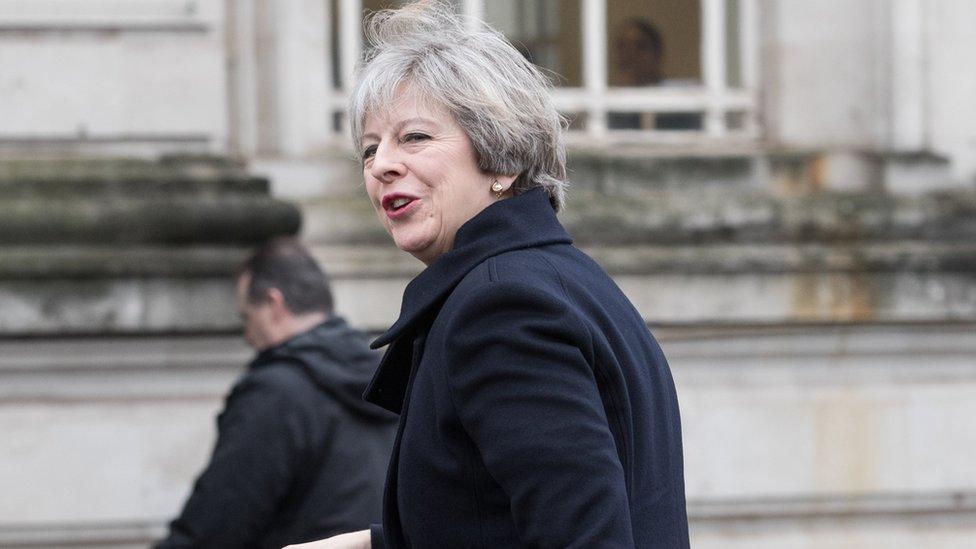
Mrs May is in Cardiff today for ministerial talks
PM Theresa May announced the state visit when she visited Washington to meet President Trump last week.
Downing Street said on Monday that Mrs May "extended an invitation on behalf of the Queen - and she was very happy to do so.
"The USA is one of this country's closest allies, and we look forward to hosting the president later this year."
Mrs May faced criticism after she hesitated to condemn Mr Trump's immigration restrictions when asked about them on Friday.
The government has since made clear that it disagrees with the measures.
Jeremy Corbyn has urged the PM to postpone the visit:
"Donald Trump should not be welcomed to Britain while he abuses our shared values with his shameful Muslim ban and attacks on refugees' and women's rights," the Labour leader said.
BBC journalist Ali Hamedani: US interrogation "like being arrested in Iran"
President Trump: "A very good day"
"I feel he has a reason for doing what he's doing" said one Staten Island resident
State visits are grand occasions requiring an invitation from the Queen, and are distinct from regular visits by heads of state. The Queen usually receives one or two heads of state a year.
Number 10 said a "committee for state visits" had recommended the president be invited to the UK.
On Friday Mr Trump signed an executive order halting the US refugee programme for 120 days, indefinitely banning all Syrian refugees and suspending the entry of all nationals from seven Muslim-majority countries.
Ed Miliband told BBC Radio 4's World at One that the travel ban handed IS a "tool" for radicalisation
On Saturday afternoon the petition had just 60 signatures but reached the 100,000 needed to be considered for debate by Parliament just after midday on Sunday.
When it passed the million mark, it was found that about 30,000 came from outside the UK.
It is now second only to last year's petition signed by more than four million people calling for a fresh referendum on whether to leave the European Union.
A 2015 campaign seeking to ban Mr Trump, then just a presidential candidate, from entering the UK gained more than 500,000 signatures.
Former Conservative Foreign Secretary Sir Malcolm Rifkind told the BBC that it would be unwise to conduct international relations on the basis of how many people had signed a petition.
Describing Mr Trump's immigration policy as "pretty dumb", he said the UK was in a special position to "in a very polite but firm and robust way make our representations and that to a significant degree is what Theresa May has been doing."
The UKIP leader Paul Nuttall told the BBC that protests against Trump's UK visit were "short sighted" and that Britain must protect its special relationship with the US.
But other opposition politicians did not hesitate to criticise the government for inviting Mr Trump.
Liberal Democrat Nick Clegg said the invitation was "far too premature":
"It is difficult to exaggerate how much damage Theresa May's naivety in rushing to sidle next to Donald Trump is doing to her reputation in European capitals," the former deputy prime minister said.
Green Party joint leader Caroline Lucas said she felt "ashamed" of the way Mrs May had handled the situation:
"What really worries me is that she is now so worried about being friendless after Brexit, that essentially she will accept any kind of relationship with any kind of bigot around the world,"
Shadow Attorney-General Shami Chakrabarti said the government's position "sounds like appeasement".
Alex Salmond, the SNP's foreign affairs spokesman, said he thought the state visit was "a very bad idea".
And Mayor of London Sadiq Khan said the visit should not happen while the executive order was in place.
- Published31 January 2017
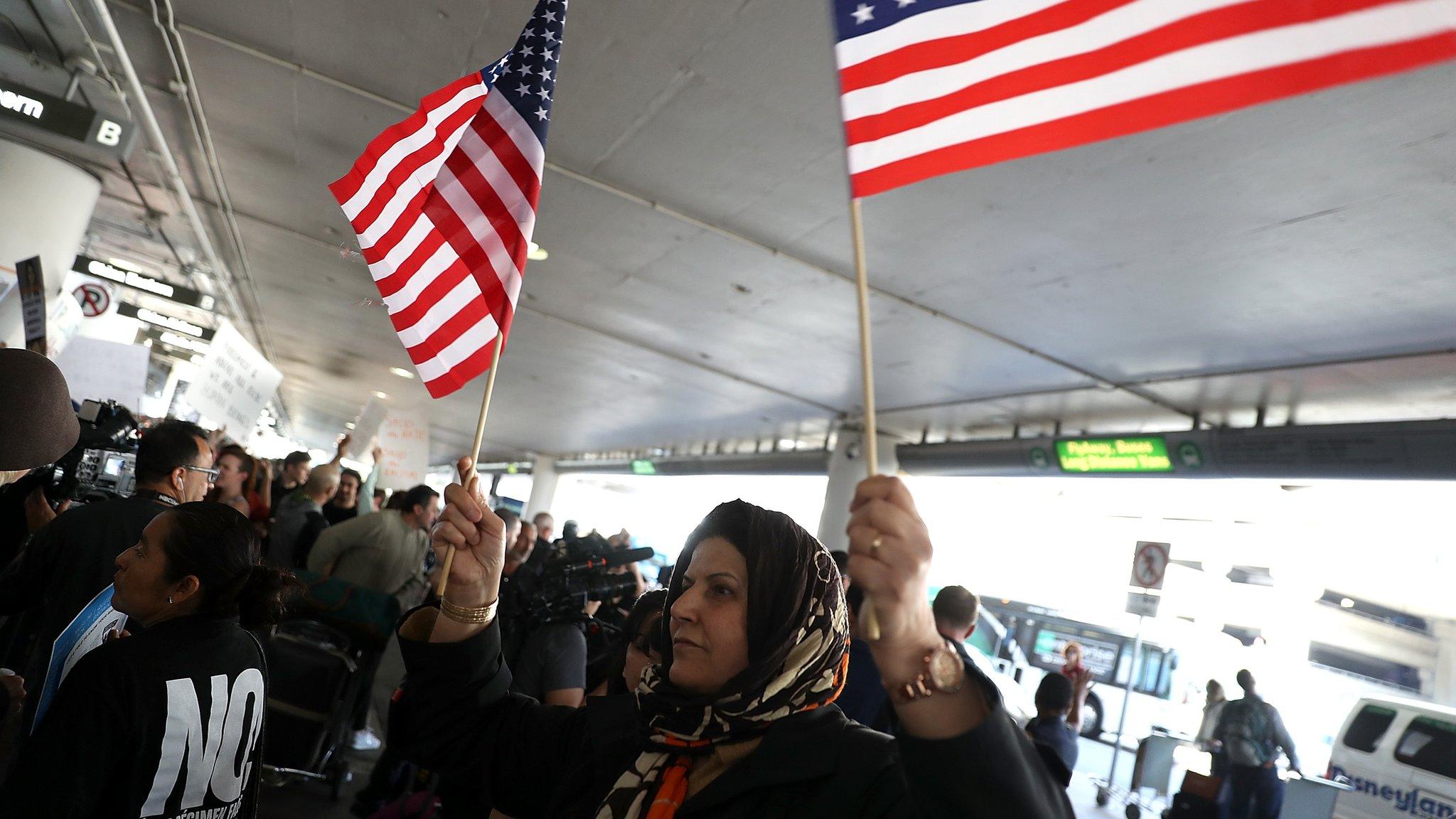
- Published30 January 2017
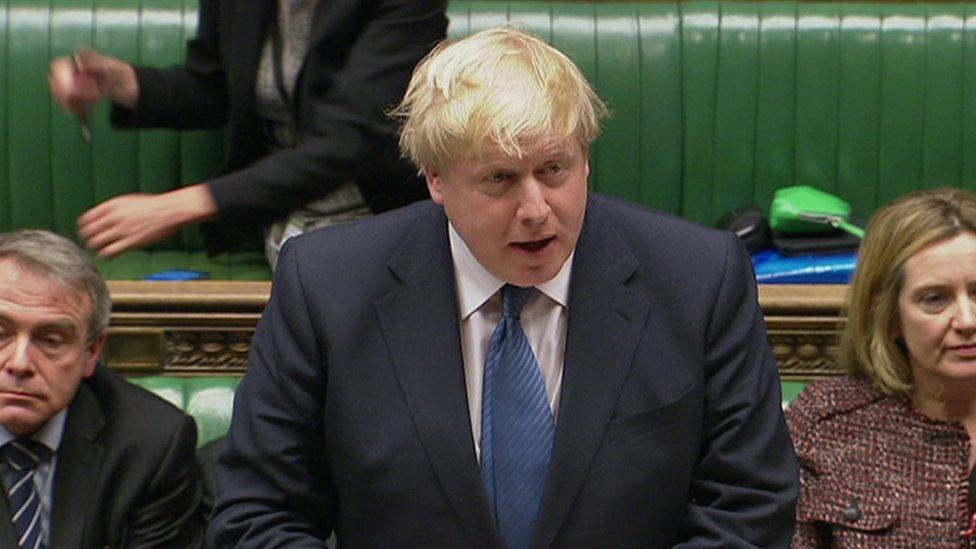
- Published28 January 2017
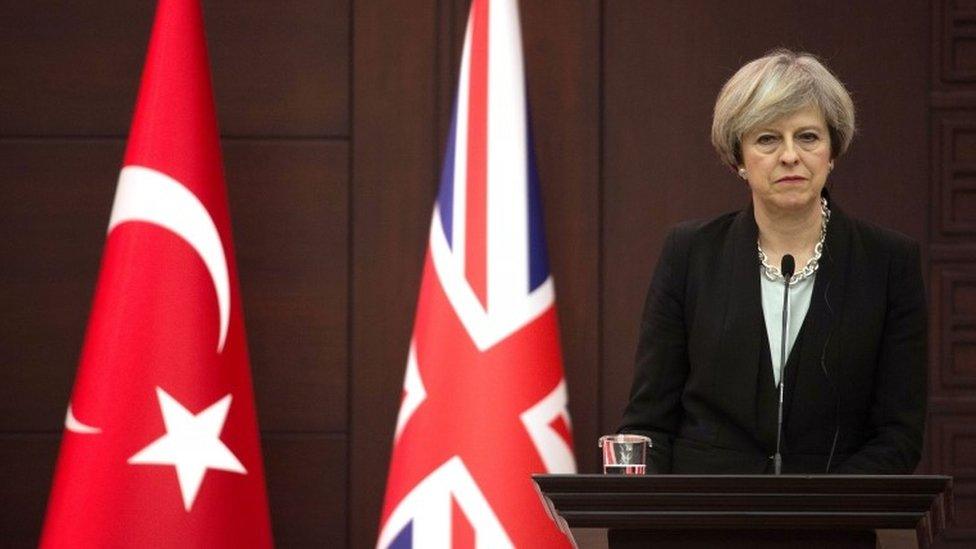
- Published28 January 2017
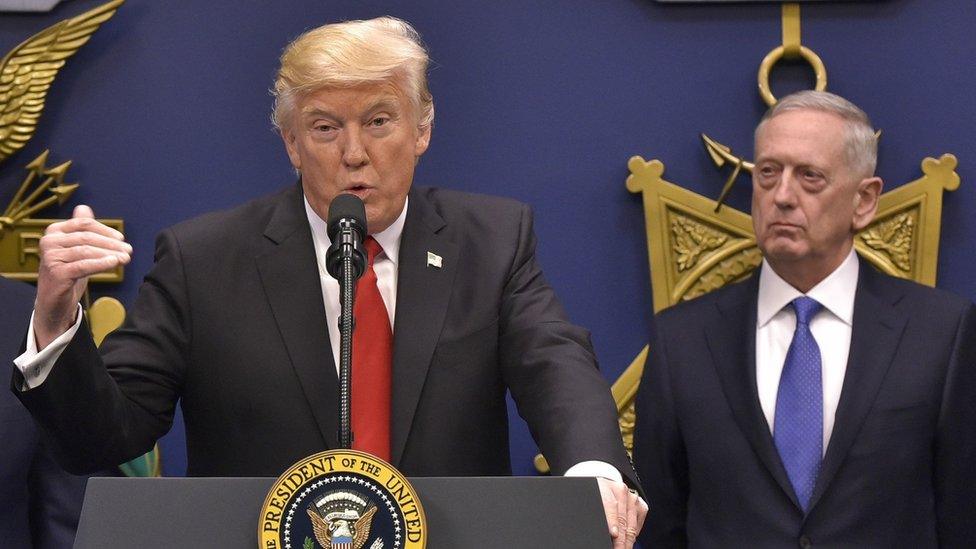
- Attribution
- Published29 January 2017
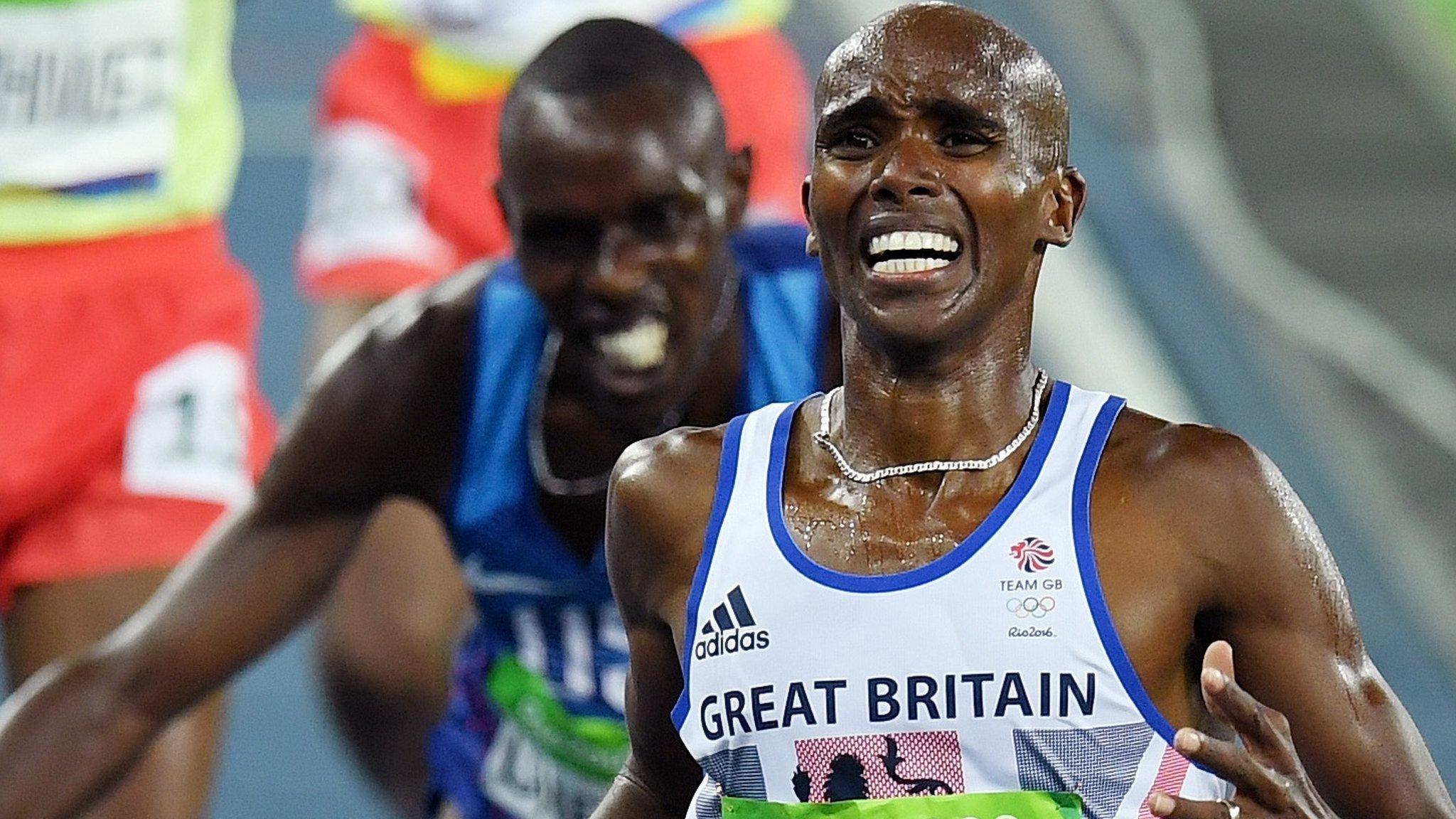
- Published29 January 2017
